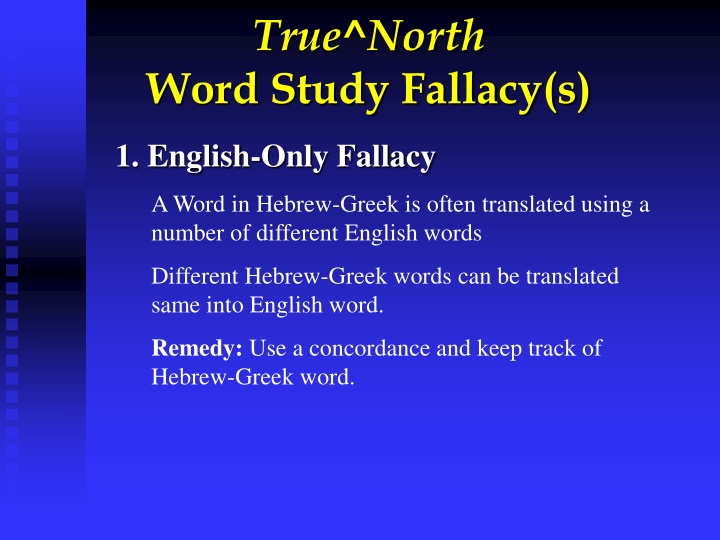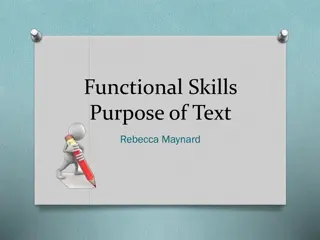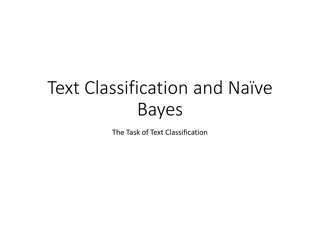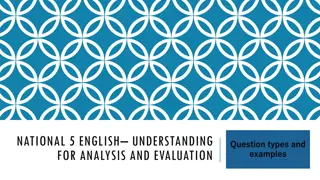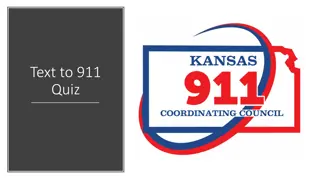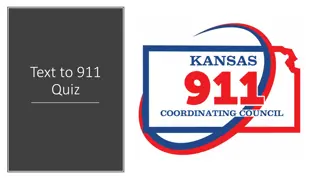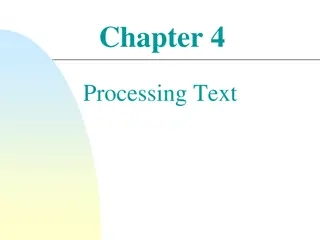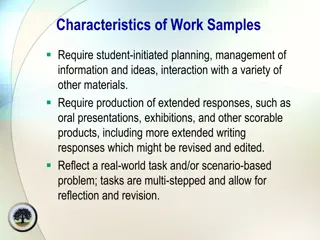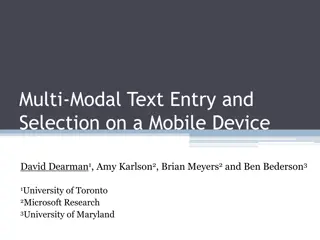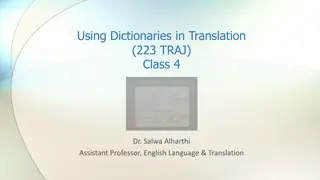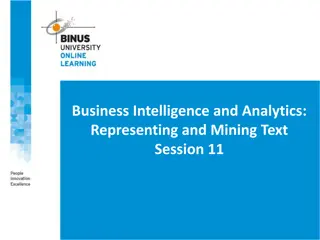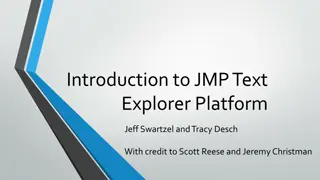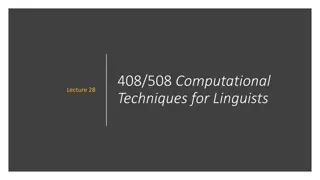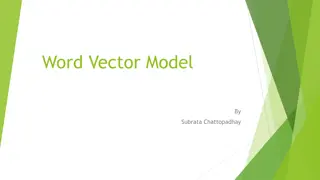Effective Strategies for Word Study in Text Analysis
Explore common fallacies in word study such as the English-Only Fallacy, Root Fallacy, Time-Frame Fallacy, and Over-load Fallacy. Learn how to overcome these fallacies by giving context priority and using concordances. Discover practical steps to choose words for study, including looking for critical words, repeated words, figures of speech, and unclear or difficult words. Follow a structured process to study words effectively in their original languages and contexts.
Download Presentation

Please find below an Image/Link to download the presentation.
The content on the website is provided AS IS for your information and personal use only. It may not be sold, licensed, or shared on other websites without obtaining consent from the author.If you encounter any issues during the download, it is possible that the publisher has removed the file from their server.
You are allowed to download the files provided on this website for personal or commercial use, subject to the condition that they are used lawfully. All files are the property of their respective owners.
The content on the website is provided AS IS for your information and personal use only. It may not be sold, licensed, or shared on other websites without obtaining consent from the author.
E N D
Presentation Transcript
True^North Word Study Fallacy(s) 1. English-Only Fallacy A Word in Hebrew-Greek is often translated using a number of different English words Different Hebrew-Greek words can be translated same into English word. Remedy: Use a concordance and keep track of Hebrew-Greek word.
True^North Word Study Fallacy(s) 2. Root Fallacy Notion that the real meaning of the word is found in its original root. e.g., nice comes from the Latin word, nescius which means ignorant No one uses the word nice to mean a person is stupid! Goodbye is a contracted form of God be with you; Is that what you really mean as you say, bye Remedy: Give context priority. CIE. Remember, a word means what an author wants it to mean.
True^North Word Study Fallacy(s) 3. Time-Frame Fallacy This happens when we latch on to a late word meaning (maybe even one of our day) and read it back into the Bible (Eis-egesis). e.g., Cross Remedy: Give context priority. CIE. In this case, maybe historical context is vital.
True^North Word Study Fallacy(s) 4. Over-load Fallacy This happens when we realize that words often mean several things. Overload happens when we make a word mean all these things! Remedy: Let context set the agenda.
True^North Word Study How to choose Words to Study 1. Look for Words that are critical to passage 2. Look for repeated words 3. Look for figures of speech 4. Look for words that are unclear or difficult 5. Look for words that might be pregnant with meaning
Word Study How to Study the Words you Choose Step 1. Get a basic definition for the Hebrew, Aramaic, or Greek word from an original meaning dictionary (www.BlueLetterBible.org) Step 2. In your specific passage, brainstorm what nuance you think the word might have in that immediate context. Step 3.Enlarge your Circles of Context. Now look at all the other places in that book where the word (or phrase) is used. Start a list of different meanings the word can have (don t mix them together). Step 4.Enlarge your Circle to include the other books written by the same author.
Word Study How to Study the Words you Choose Step 5. Look at the rest of the New Testament. Step 6. Now, examine Theological Dictionary(s). Listen for nuances you may have missed. For historical background, listen for the rest of the places where that word is used by other authors of that dayAs much as you are able and as information is available, explore how the word or phrase was used in the secular writings of the day. Step 7. Now return to the passage in question. From the dictionary you have created, select a meaning for your passage that seems best to fit its immediate context
